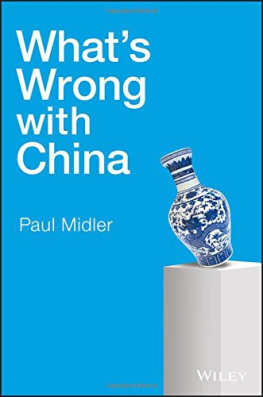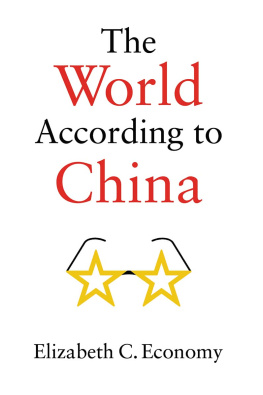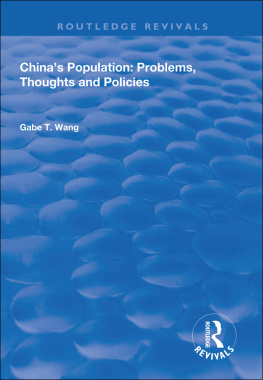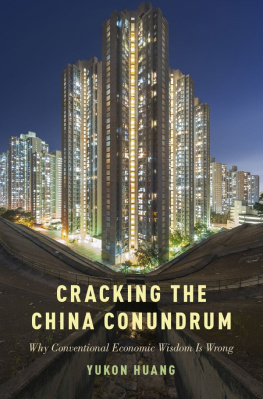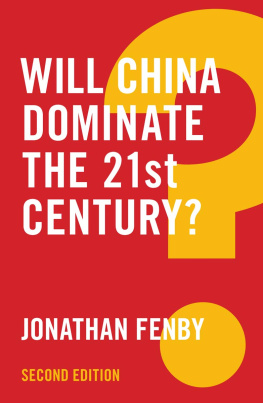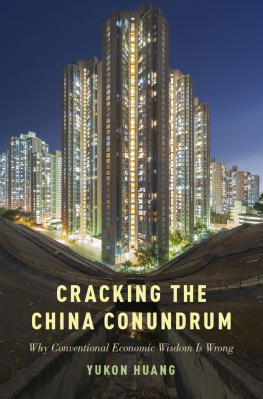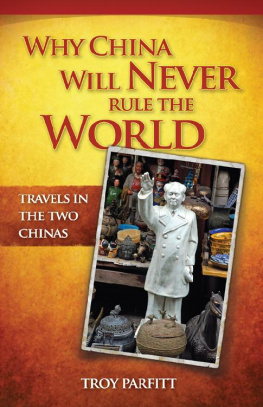Paul Midler - What′s Wrong with China
Here you can read online Paul Midler - What′s Wrong with China full text of the book (entire story) in english for free. Download pdf and epub, get meaning, cover and reviews about this ebook. year: 2018, publisher: Wiley, genre: Detective and thriller. Description of the work, (preface) as well as reviews are available. Best literature library LitArk.com created for fans of good reading and offers a wide selection of genres:
Romance novel
Science fiction
Adventure
Detective
Science
History
Home and family
Prose
Art
Politics
Computer
Non-fiction
Religion
Business
Children
Humor
Choose a favorite category and find really read worthwhile books. Enjoy immersion in the world of imagination, feel the emotions of the characters or learn something new for yourself, make an fascinating discovery.
- Book:What′s Wrong with China
- Author:
- Publisher:Wiley
- Genre:
- Year:2018
- Rating:5 / 5
- Favourites:Add to favourites
- Your mark:
What′s Wrong with China: summary, description and annotation
We offer to read an annotation, description, summary or preface (depends on what the author of the book "What′s Wrong with China" wrote himself). If you haven't found the necessary information about the book — write in the comments, we will try to find it.
Product Description
From the Inside Flap
Viewed from a distance, China appears to be a stable economy growing at a healthy pace. Looking more closely, however, we discover a flawed civilization stalling under the weight of its own culture. Whats Wrong with China is a personal book about a great nation at a crossroads.
There is more to fear from a weak China than one that is strong we are told, implying that its main problems are either macroeconomic or political. Whats Wrong with China takes the reader behind the scenes and down the rabbit hole to show that the nations most fundamental problems are actually social in nature.
More than a century ago, China watchers worried about the imminent crackup of the country. Today we find ourselves again preoccupied by such a possibility, though this time around the stakes are much higher. Given the size of Chinas economy and the extent of its integration into the global system, the countrys difficulties are now our own, whether we like it or not.
No one writes about China like Paul Midler. Drawing from years of ontheground experience and research, he mixes penetrating observations with amusing historical references, weaving a tapestry that is both engaging and illuminating.
China is an enigma, a Gordian knot, an impenetrable riddle that requires a different approach. Whats Wrong with China is a collage of ideas, a grab bag of themes and theories, not the least of which is the authors supposition that Chinese culture is rooted in a deep informalism that cannot be eradicated.
Business and politics are inextricably tied, so the book necessarily touches on global affairs. We must let go of many preconceived notions, Midler warns, as he addresses facets of the China puzzle that typically receive little or no attention.
Whats Wrong with China offers especially useful lessons for those doing business in China, but this is no howto guide. Rather than tell us how our affairs should be conducted in this strange land, Midler describes how things are done, leaving readers to draw their own conclusions.
From the Back Cover
Whats Wrong with China is the widely anticipated followup to Paul Midlers Poorly Made in China, an expos of China manufacturing practices. Applying a wider lens in this account, he reveals many of the deep problems affecting Chinese society as a whole. Once again, Midler delivers the goods by rejecting commonly held notions, breaking down old myths, and providing fresh explanations of lesserunderstood cultural phenomena.
Whats Wrong with China is the most cogent, insightful and penetrating examination I have read on the paradoxes and selfdeceptions of Modern China, written by someone who has lived in the country and dealt with it day to day for decades. This book will be hated by the commissars, because it is a triumph of analysis and good sense.
PAUL THEROUX
I sure wish Id read this book before heading to China - or Chinatown, for that matter. China runs on an entirely different operating system - both commercial and personal. Midlers clear, clever analysis and illuminating, often hilarious tales foster not only understanding but respect.
MARY ROACH
About the Author
Paul Midler has lived twenty years in East Asia and speaks Mandarin. He works as a consultant and advisor to companies with business interests in the region. His first book, Poorly Made in China, was published to significant acclaim and his followup, Whats Wrong with China, has been widely anticipated.
Paul Midler: author's other books
Who wrote What′s Wrong with China? Find out the surname, the name of the author of the book and a list of all author's works by series.

